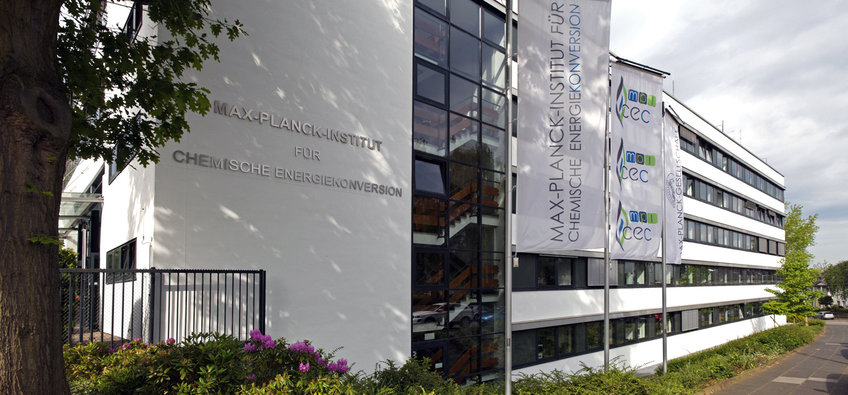As a national hub for molecular biosciences in Sweden, SciLifeLab develops and maintains unique research infrastructure, services and data resources for life science. The overall aim of SciLifeLab is to facilitate cutting-edge, multi-disciplinary life science research and promote its translation to the benefit of society. About 200 research groups, 1500 researchers and 40 national infrastructure units are associated with SciLifeLab, with two main centers located in Stockholm and Uppsala, but with national SciLifeLab units at all major Swedish universities.
The SciLifeLab and Wallenberg National Program for Data-Driven Life Science (DDLS) is a 12-year initiative that focuses on data-driven research, within fields essential for improving people’s lives, detecting and treating diseases, protecting biodiversity and creating sustainability. The program will train and recruit the next generation of data-driven life scientists and create strong and globally competitive computational and data science capabilities in Swedish life science. The program aims to strengthen national collaborations between universities, bridge the research communities of life and data sciences, and create partnerships with industry, healthcare and other national and international actors.
As part of the DDLS program, the bioinformatics platform at SciLifeLab (NBIS) provides bioinformatics support to scientifically outstanding research projects at Swedish universities. NBIS is a large national infrastructure with around 100 staff, providing advanced support, infrastructure and training to the Swedish life science research community.
We are now looking for a bioinformatician with expertise in structural biology to join the NBIS Support team, to establish structural biology as a new national support function as a part of the DDLS initiative.
SciLifeLab’s new Integrated Structural Biology platform and other large initiatives like MAX IV and ESS put Sweden in a uniquely strong position for structural biology, and together with recent advances in protein structure prediction this is a very rapidly evolving area with implications across many research fields.
The NBIS support team currently comprises close to 60 full-time senior bioinformaticians across Sweden, with expertise in data analysis across a broad range of technologies and research areas.
We here seek skilled and motivated candidates to establish national bioinformatics support primarily focused on analysis of cryo-EM data. The service will be developed in close collaboration with the SciLifeLab Cryo-EM unit, holding state-of-the-art equipment and expertise in single particle cryo-EM, cryo-electron tomography (cryo-ET), and microED, providing services from specimen optimization to data acquisition to more than 150 research groups in the Nordics. These services will now be complemented with advanced bioinformatics support for cryo-EM image processing, structure determination and model analysis, with strong connections to other structural biology technologies and structure prediction methods.
You will get the opportunity to work in a vibrant research environment and with a range of interesting projects in collaboration with different research groups. We are a strong and collaborative team of bioinformatics experts and this, in conjunction with the broad competence within NBIS, the Cryo-EM unit and the larger SciLifeLab community, creates an excellent forum to maintain cutting-edge expertise and acquire new skills. In addition to direct involvement in research projects, the work includes teaching on advanced national courses and potentially method and data resource development in close collaboration with the SciLifeLab Data Centre and the emerging DDLS Data Area Nodes.
The position is placed at SciLifeLab Stockholm, which is situated at the research campus of Karolinska Institutet in northern Stockholm.
Main responsibilities
The main responsibilities are to:
- Carry out advanced data analyses within nationally prioritized projects.
- Potentially develop tools and workflows for such analyses.
- Educate other scientists in bioinformatics through collaboration within supported projects, teaching at advanced national courses and consultations.
- Take part in the continuous development and improvement of the SciLifeLab Bioinformatics Platform, the Cryo-EM unit, and the DDLS program at a national level.
Qualification requirements
We are looking for a highly motivated scientist with a strong background and interest in computational methods for analysis of molecular structures.
The successful candidate should have:
- A PhD in bioinformatics, computer science, structural biology or other relevant area.
- Extensive experience with computational analysis of three-dimensional protein structures or software development for cryo-EM.
- Advanced skills in one or more programming languages.
- Fluent oral and written communication skills in English.
- Strong skills in cooperation and communication.
Postdoctoral studies are a strong merit but not a requirement. Experience with structure prediction tools such as Rosetta and AlphaFold is a strong merit. Skills in experimental design would be beneficial. Great importance will be given to personal suitability.
Terms of employment
This is a full-time, indefinite-term position with a six-month trial period. Salaries at Stockholm University are determined individually. Start date as per agreement.
Stockholm University strives to be a workplace free from discrimination and with equal opportunities for all.
Contact
Further information about the position can be obtained from NBIS Bioinformatics Support Manager, Pär Engström, par.engstrom@scilifelab.se, telephone: +46 8 16 22 44, and the Head of Cryo-EM Unit, Marta Carroni, marta.carroni@scilifelab.se, telephone: +46 8 16 10 13.
Union representatives
Ingrid Lander (Saco-S), telephone: +46 708 16 26 64, saco@saco.su.se, Alejandra Pizarro Carrasco (Fackförbundet ST/Lärarförbundet), telephone: +46 8 16 34 89, alejandra@st.su.se, and seko@seko.su.se (SEKO).
Application
Apply for the position at Stockholm University's recruitment system. It is the responsibility of the applicant to ensure that the application is complete in accordance with the instructions in the job advertisement, and that it is submitted before the deadline.
Only include the cover letter and CV in your application. Bring copies of grades and certificates if you are called to an interview.
The instructions for applicants are available at: How to apply for a position.
You are welcome to apply!
Stockholms universitet bidrar till det hållbara demokratiska samhällets utveckling genom kunskap, upplysning och sanningssökande.
Closing date: 28/03/2022
URL to this pagehttps://www.su.se/english/about-the-university/work-at-su/available-jobs?rmpage=job&rmjob=17294&rmlang=UK

